Hydration – it's a simple word, but its impact on our health is monumental. Every cell, tissue, and organ in our human body relies on water to function optimally. Yet, despite its vital importance, many of us struggle to keep up with our daily water intake. This is where HidrateSpark steps in, offering a smart, innovative solution to ensure we stay adequately hydrated.
Our journey through understanding the composition of water in the human body begins here. This guide will explore not just why water is essential, but also how tools like HidrateSpark can transform the way we think about and consume water daily.
Navigating the intricacies of body hydration levels, the consequences of dehydration, and the balance of water intake will no longer be a challenge. With insights into how a smart water bottle like HidrateSpark can revolutionize your hydration habits, you'll find maintaining optimal hydration is not just necessary for health, but also easily achievable and trackable.
As we dive into the depths of hydration, let’s quench our thirst for knowledge and discover how to maximize our health through the power of water. Welcome to the world of informed hydration – a journey toward better health with HidrateSpark as your companion.
The Role of Water in the Human Body
Water is not just a fundamental element for survival; it's the essence of life itself, especially for the human body. Comprising up to 60-75% of an adult's body weight, water is the cornerstone of our physical existence. Each part of our body reflects this crucial reliance on water. The brain and heart, for instance, are composed of about 73% water, while the lungs are even more water-dense at approximately 83%.
This prevalence of water in our body underlines its diverse and vital roles. Nearly every major system in our body depends on water to function properly. It's more than a thirst quencher – it's a life sustainer. Water maintains our body's temperature, lubricates joints, and safeguards sensitive tissues, including the spinal cord. It's an integral part of our tissues and cells, providing a medium where biochemical reactions occur and facilitating the transport of nutrients and waste products.
The human body's dependence on water is so crucial that even a slight imbalance can have significant consequences. A loss of just 4% of total body water can lead to dehydration, impacting physical and cognitive functions. The severity of dehydration is such that a loss of 15% can be life-threatening. In contrast, humans can survive without food for about a month, but going without water for even three days can be fatal.
Our innate thirst mechanism is a sophisticated alert system indicating when our bodies need water. Thirst signals the onset of dehydration, prompting us to replenish lost fluids. This natural response is not just about quenching thirst but about maintaining the delicate balance of hydration crucial for our bodily functions.
In summary, water is not just a part of us; it is us. Understanding its role and ensuring adequate intake is not just about staying hydrated; it's about maintaining the very essence of our health and well-being.
How Dehydration Affects Your Health
Dehydration, a condition where the body loses more water than it takes in, can have a significant impact on health. Even mild dehydration, signaled by the onset of thirst, can lead to symptoms like headache, fatigue, and dizziness. These early signs are just the tip of the iceberg, as dehydration can escalate to more serious health issues if not promptly addressed.
The initial effects of dehydration include symptoms such as dry mouth, extreme thirst, infrequent urination, and unusually dark urine. The body, in an attempt to conserve water, reduces urine output, and the urine that is produced is more concentrated. This is often accompanied by a decrease in skin elasticity, indicating a more systemic water deficit.
Dehydration doesn’t just affect physical health; it also impacts cognitive function and mood. The brain, which is highly sensitive to water levels in the body, sends signals of thirst when dehydration begins. However, even before we feel thirsty, dehydration can lead to a decrease in cognitive performance and mood alterations. This is crucial because our mental agility and emotional state play vital roles in our daily functioning and overall well-being.
If dehydration persists and becomes more severe, it can lead to life-threatening complications. One of the critical risks is heatstroke or heat exhaustion. In a dehydrated state, the body struggles to regulate its temperature due to impaired sweat production, leading to dangerously high body temperatures. Additionally, severe dehydration can trigger seizures, a result of electrolyte imbalances in the body. These severe symptoms underscore the importance of recognizing and addressing dehydration early on.
In conclusion, dehydration is a condition that should never be taken lightly. Its effects range from mild physical discomforts to severe, potentially fatal complications. Understanding these risks emphasizes the importance of maintaining proper hydration for both physical and mental health.
Hydration and Lifestyle: Balancing Water Intake
The delicate balance of hydration in our bodies is significantly influenced by various lifestyle factors. Recognizing and adapting to these factors is crucial for maintaining proper hydration.
Medical Conditions and Illnesses: Certain health conditions and illnesses necessitate increased water intake. Conditions like diabetes, heart disease, bladder infections, and urinary tract stones, as well as temporary illnesses accompanied by fever, vomiting, or diarrhea, can increase fluid requirements. In these scenarios, the body needs more water to regulate its temperature, fight infections, and eliminate waste efficiently
Physical Activity: Engaging in physical exercise elevates the body’s hydration needs. As we exert ourselves, our body temperature rises, and we lose water through sweat. This water loss needs to be replenished to maintain the balance of fluids in the body and to ensure the efficient removal of metabolic waste produced during exercise.
Environmental Factors: Climatic conditions like hot weather and high altitude can also affect our hydration needs. In hotter climates or at higher altitudes, the body loses more water through increased perspiration and respiration, requiring a higher intake of fluids to compensate for these losses.
Dietary Influences: A diet rich in fiber requires more water, as fiber absorbs water during digestion. Additionally, the consumption of caffeine and alcohol, both of which have diuretic effects, can lead to increased fluid loss. This necessitates a higher water intake to maintain hydration.
Individual Variability: Hydration needs vary from person to person. While the general guideline suggests that a healthy person needs about 30 to 50 ounces of fluid per day, this can vary based on individual factors like body size, age, and overall health. Some people may be sufficiently hydrated with less than eight glasses of water a day, while others might need more.
In conclusion, balancing water intake is a personalized endeavor. It requires an understanding of one’s own body, lifestyle, and environmental conditions. Monitoring hydration through simple methods, like observing urine color, and adjusting fluid intake accordingly, is a generalized approach to ensure adequate hydration.
Practical Hydration Tips for Everyday Life
Maintaining adequate hydration is crucial for overall health, and incorporating simple, practical steps into your daily routine can significantly enhance your hydration habits. Here are some effective strategies:
Prioritize Water as Your Primary Drink: Water is the most beneficial and direct way to stay hydrated. It's advisable to make water your primary beverage choice throughout the day. This not only ensures adequate hydration but also helps in avoiding drinks that might lead to dehydration, such as those with high sugar or caffeine content.
Incorporate Water-Rich Foods: Your diet can play a significant role in your hydration levels. Consuming fruits and vegetables high in water content is an excellent way to contribute to your daily water intake. These foods not only hydrate but also provide essential nutrients.
Carry a Reusable Water Bottle: Keeping a water bottle handy at all times encourages more frequent sips of water, helping to prevent dehydration. Opting for a reusable bottle is both environmentally friendly and a constant reminder to drink water throughout the day.
Flavor Your Water: To make water intake more appealing, consider adding natural flavors like lemon, lime, or orange slices to your water. This can enhance the taste and make it more likely that you'll drink sufficient amounts throughout the day.
Set Reminders: In our busy lives, it's easy to forget to drink water. Setting reminders on your phone or using apps designed for hydration tracking can be an effective way to ensure you're consistently consuming enough water.
Don’t Wait to Feel Thirsty: Thirst is a late indicator of dehydration. It’s important to sip water regularly, rather than waiting until you feel thirsty. This practice is especially crucial in hot weather or when you’re exercising, as dehydration can set in quickly under these conditions.
Implementing these tips into your daily routine can help ensure that you stay well-hydrated, supporting your overall health and well-being. Or better yet, let HidrateSpark do it for you.
HidrateSpark: A Smart Solution to Stay Hydrated
In the quest for optimal hydration, technology has stepped in to offer a smart and convenient solution. HidrateSpark, an innovative smart water bottle, is revolutionizing how we track and maintain our daily water intake.
Innovative Features of HidrateSpark
HidrateSpark combines advanced technology with user-friendly design. It's equipped with sensors that track the amount of water you consume and syncs this data with a mobile app. This integration allows for real-time monitoring of your hydration levels. The app can also remind you to drink water at regular intervals, ensuring that you stay consistently hydrated throughout the day.
Customizing Hydration Goals
What sets HidrateSpark apart is its ability to personalize hydration goals. It takes into account individual factors such as age, weight, activity level, and even the local weather to suggest a daily water intake goal that's tailored just for you. This personalized approach ensures that you're not just drinking water, but doing so in a way that aligns with your specific hydration needs.
Engaging and Motivating Users
Beyond its primary function of hydration tracking, HidrateSpark adds an element of fun and motivation. The bottle lights up as a reminder to drink water, making hydration a more engaging experience. Users can also participate in hydration challenges with friends or track their progress over time, turning the act of drinking water into a rewarding and interactive experience.
HidrateSpark in Everyday Life
Incorporating HidrateSpark into your daily routine is a step towards mindful hydration. Whether you're at home, in the office, or working out, the bottle serves as a constant reminder to drink water. It's particularly useful for those with busy lifestyles who might otherwise forget to stay hydrated.
HidrateSpark is more than just a water bottle; it's a comprehensive hydration system that blends technology with practicality. By reminding us to drink water and tracking our intake, HidrateSpark makes staying hydrated an achievable and even enjoyable goal. For those looking to enhance their hydration habits, HidrateSpark offers a smart, interactive, and effective solution.
Conclusion
In concluding our exploration of hydration, it's clear that understanding the role of water in the human body is not just a matter of scientific interest, but a cornerstone of maintaining good health. This journey has highlighted the importance of staying hydrated, the impact of dehydration on our well-being, and the various factors influencing our hydration needs.
We've also delved into practical tips for integrating effective hydration practices into our daily lives. These strategies, from prioritizing water intake to adapting our routines to meet our body's fluid requirements, are essential for sustaining our health and vitality.
HidrateSpark emerges as a key ally in this endeavor. By offering a smart, innovative solution to track and improve hydration habits, HidrateSpark transforms how we approach our daily water intake. It's not just about drinking water; it's about doing so intelligently and efficiently.
As we conclude, remember that staying hydrated is a simple yet powerful way to enhance your overall health. With tools like HidrateSpark and the insights shared here, we can all make informed decisions about our hydration, ensuring that our bodies are well-nourished and functioning at their best. Visit HidrateSpark.com to learn more and take the first step towards optimized hydration and improved health.
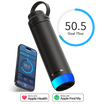
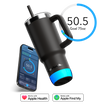
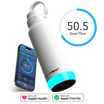

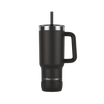

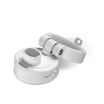

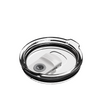
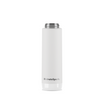
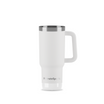
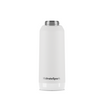






Leave a comment
This site is protected by hCaptcha and the hCaptcha Privacy Policy and Terms of Service apply.